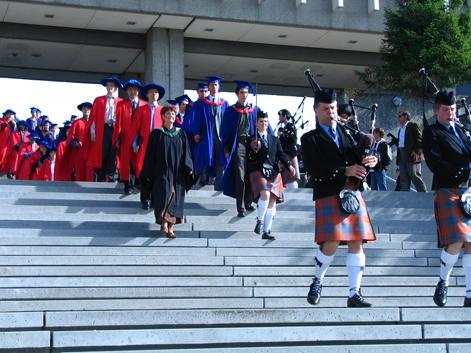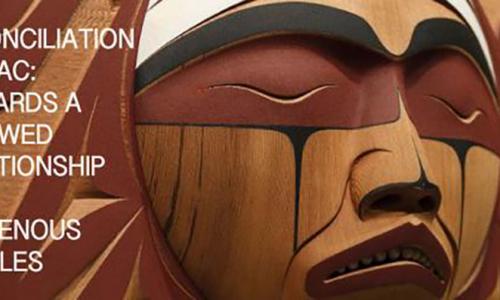
When Political Science student David Skerik prepared to convocate in June 2008, he acknowledge his Co-op experiences as an immense help in his academic career, allowing him to excel in his studies and in the workplace.
Upon entering SFU from Douglas College, David remembers feeling unclear about the Co-op program. “Going into the program, and as an older student, I wasn’t entirely sure what Co-op was or how I could benefit from it,” David, who was 28 at the time, recalls. Now, as a 33 year old father, he’s glad he decided to give it a chance as he received his Bachelor of Arts degree with Co-op designation.
David has always been interested in Political Science and First Nations affairs, and was able to demonstrate this throughout his four Co-op work terms.
His first work term was an 8-month position as a treaty research assistant for the In-SHUCK-ch Nation - an amalgamation of the Samahquam, Skatin, and Douglas First Nations. David notes how he enjoyed the mesh of real-world lessons with his school-based knowledge. “My professors helped me a lot with this process,” he says.
His next work term was a self-directed placement working with the In-SHUCK-ch Nation’s Governance Planning Group. The Governance Planning Group consists of the political leaders of the three bands of the In-SHUCK-ch Nation. “The group is tasked to find solutions for the political relationships the In-SHUCK-ch Nation is developing,” David explains. The work done in this position was built upon the research done in his first work term. Some aspects of his job included the documenting of the Nation’s complex governing structure, and organizing group meetings for the Chief Negotiator, Eppa. David continued to work with the Governance Planning Group as he completed his degree and adjusted to life as a new father. “The In-SHUCK-ch Nation is the best employer I have ever had - and I have had lots,” says David.
His final work term was with the Federal Government, for the Admissions Unit of the IAP Secretariat (A division of Indian and Northern Affairs Canada). The IAP Secretariat is “responsible for continuing claims related to the Indian Residential Schools Settlement Agreement” David explains. While he helped to develop admissions policy, the brunt of David’s work was analyzing applications for adjudication. “[It] was the most difficult work I have done,” David recalls, as the job required having to carefully read first person accounts of abuse that occurred at Indian Residential Schools, which could be disturbing at times. “Fortunately, my supervisors and colleagues (mostly other Co-op students) were very compassionate and supportive.”
Approaching graduation, David was thankful to his professors for guiding his success and influencing his life. “The most valuable and encouraging professors I had were Patrick Smith, Andy Heard, and John Calvert. My Co-op experience enabled me to see beyond the classroom and into the real world where answers to political problems are less easy and far less clear. My work experience broadened my academic horizons and because of this my professors encouraged me to pursue relevant and meaningful research. Therefore, the SFU Co-op experience fed back into my academic experience and my professors ensured I was sufficiently challenged in my thinking.” He is also proud of how much his academic standing has excelled from his Co-op experiences along with his classroom learning. “I’ve finished with A+’s,” he says, proudly.
David plans to continue his studies through the Master of Public Policy Program at SFU’s Downtown Vancouver campus.
David emphasizes that all students should get involved with Co-op as soon as possible, no matter how old they are, or how much experience they have. “I know some students interested in Co-op do not have any work experience going in, while others like me have numerous training. Either way, it’s a very crucial step for students to take in order to see what is going on out there.” David asserts. “You really cannot understand the value of the program until you try it out for yourself!”














